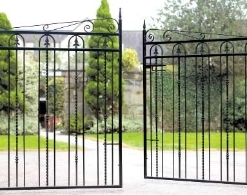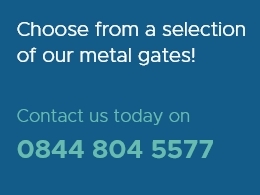Choosing the right material for your entrance gate isn't just about curb appeal—it's about finding that sweet spot between durability, security, and your budget. And after years in the industry, we've seen homeowners make costly mistakes by choosing materials that look brilliant on day one but fall apart faster than a soggy biscuit on a hot day!
So here at Metal Gates Direct, let us walk you through what really works.

Steel: The heavyweight champion
Steel gates are the Rolls-Royce of entrance solutions. They're tough as old boots and can handle whatever British weather throws at them. However, not all steel is created equal.
Mild steel offers fairly decent strength at an equally decent price point. We've found it to be ideal for most residential settings, although it'll need regular maintenance to keep rust at bay. Think of it as buying a reliable Ford—it'll do the job, but you'll need to show it some love.
Galvanised steel takes things up a level. The zinc coating acts like an umbrella against moisture, giving you years of protection. Here's the thing though—if that coating gets damaged, rust can creep in faster than you'd expect.
Corten steel (weathering steel) is the trendy option that's gained popularity lately. It develops that distinctive rusty feel that actually protects the underlying metal. Honestly, it's not for everyone—some neighbours might think you've forgotten to maintain your gate!
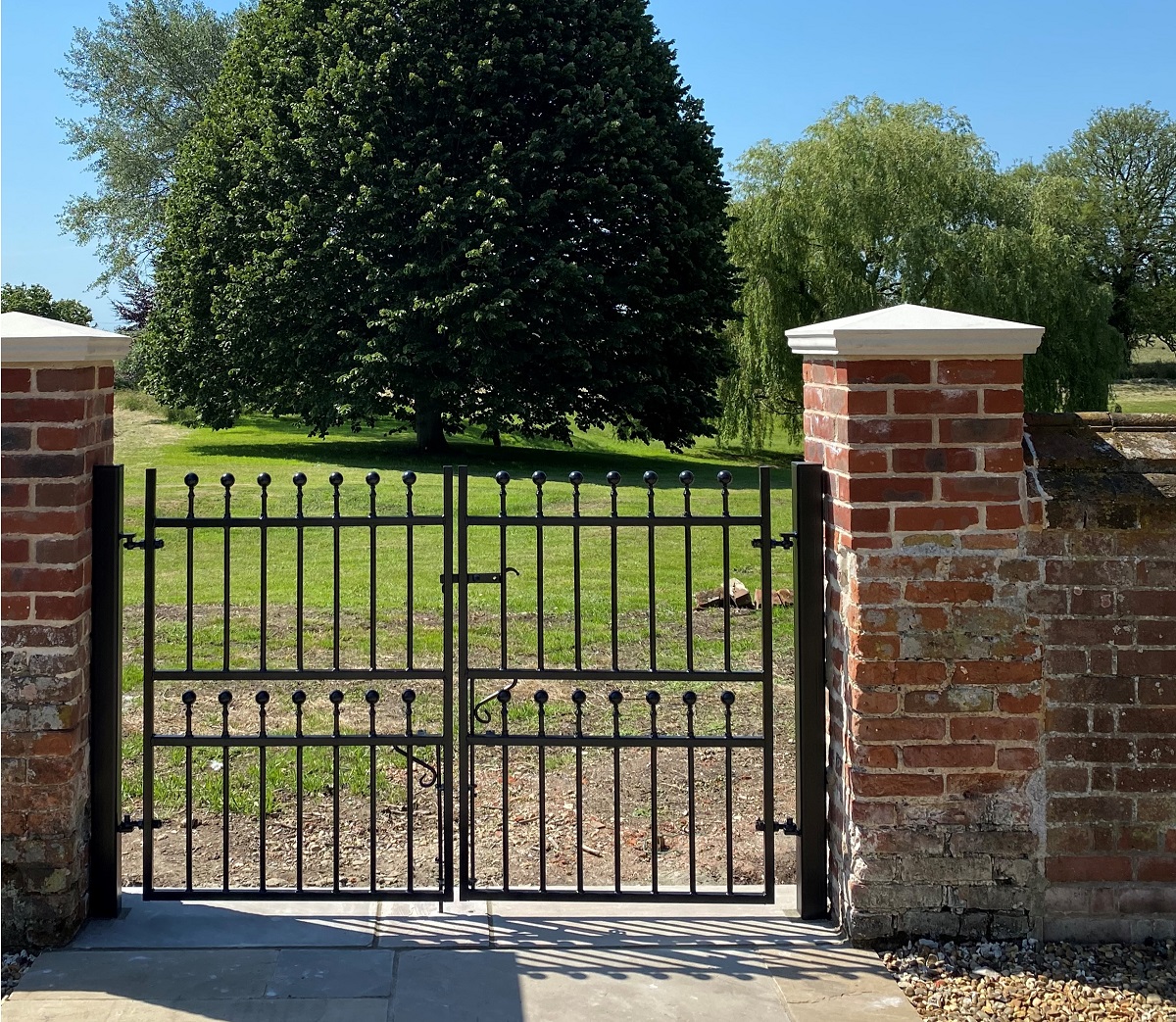
The Aluminium Choice: Its Light but mighty!
Don't let aluminium's lightweight nature fool you. Modern aluminium gates pack serious strength whilst being surprisingly easy on the hinges and motors. They won't rust, which is brilliant news for coastal properties where salt air can wreak havoc.
The powder coating options are virtually endless. Want racing green? No problem. Fancy a bold red? Easy peasy. Plus, they're low maintenance—just an occasional wash with soapy water keeps them looking smart.
Disclaimer… cheaper aluminium can dent more easily than steel. It's like comparing a tin can to a steel drum. Quite conclusive isn’t it!
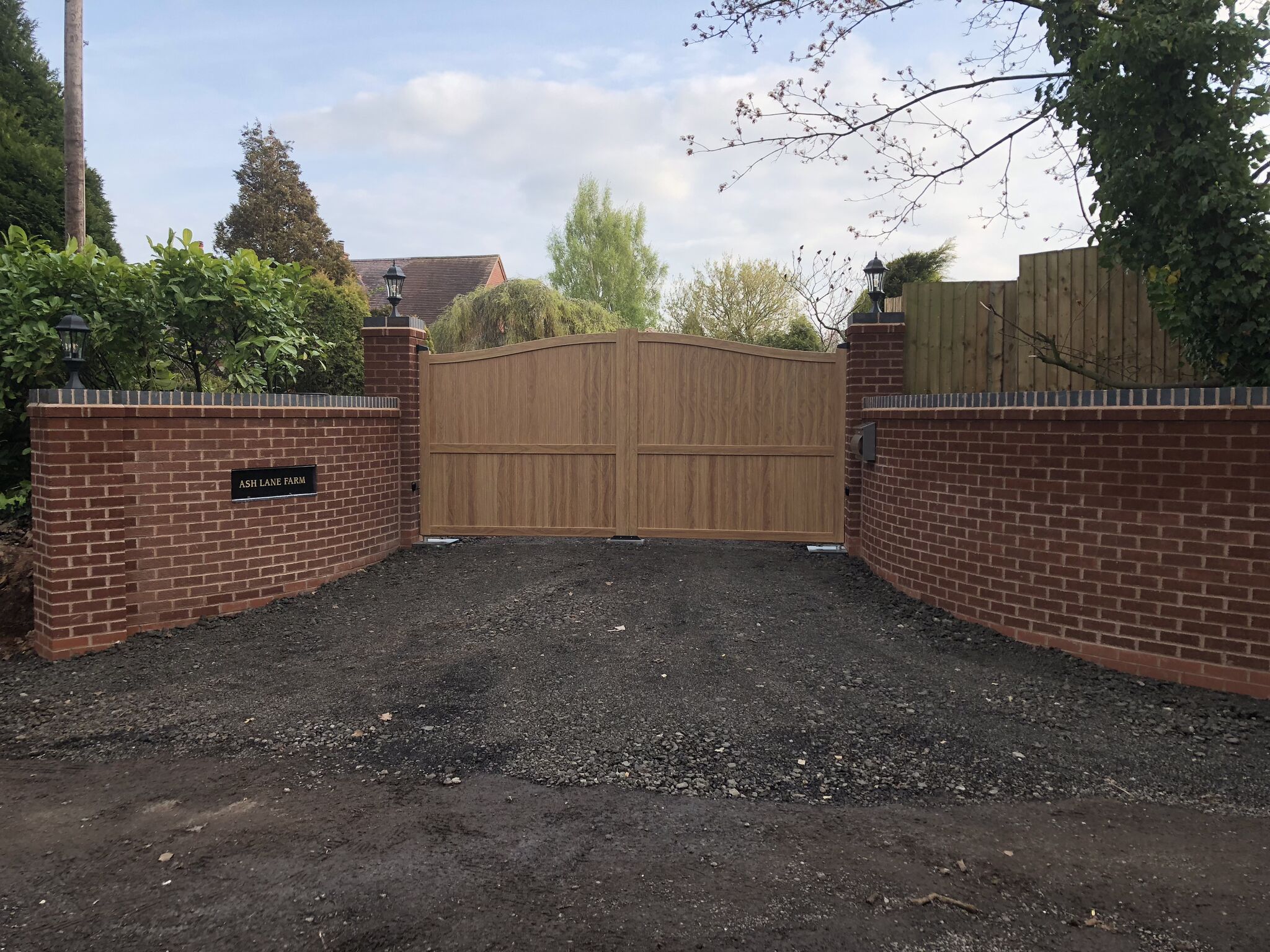
Wrought iron: The classic choice
Wrought iron gates scream elegance and tradition. They're the gate equivalent of a tailored Savile Row suit—timeless, sophisticated, and undeniably impressive. The craftsmanship involved in creating intricate scrollwork and details is genuinely remarkable.
However, let's be honest about the drawbacks. Wrought iron requires consistent maintenance. If you miss a year of treatment, and you'll be dealing with rust spots that spread like gossip in a small village! The cost can also make your eyes water—quality wrought iron work doesn't come cheap.
Most "wrought iron" gates today are actually mild steel crafted to look like traditional wrought iron. They offer similar aesthetics at a fraction of the cost.
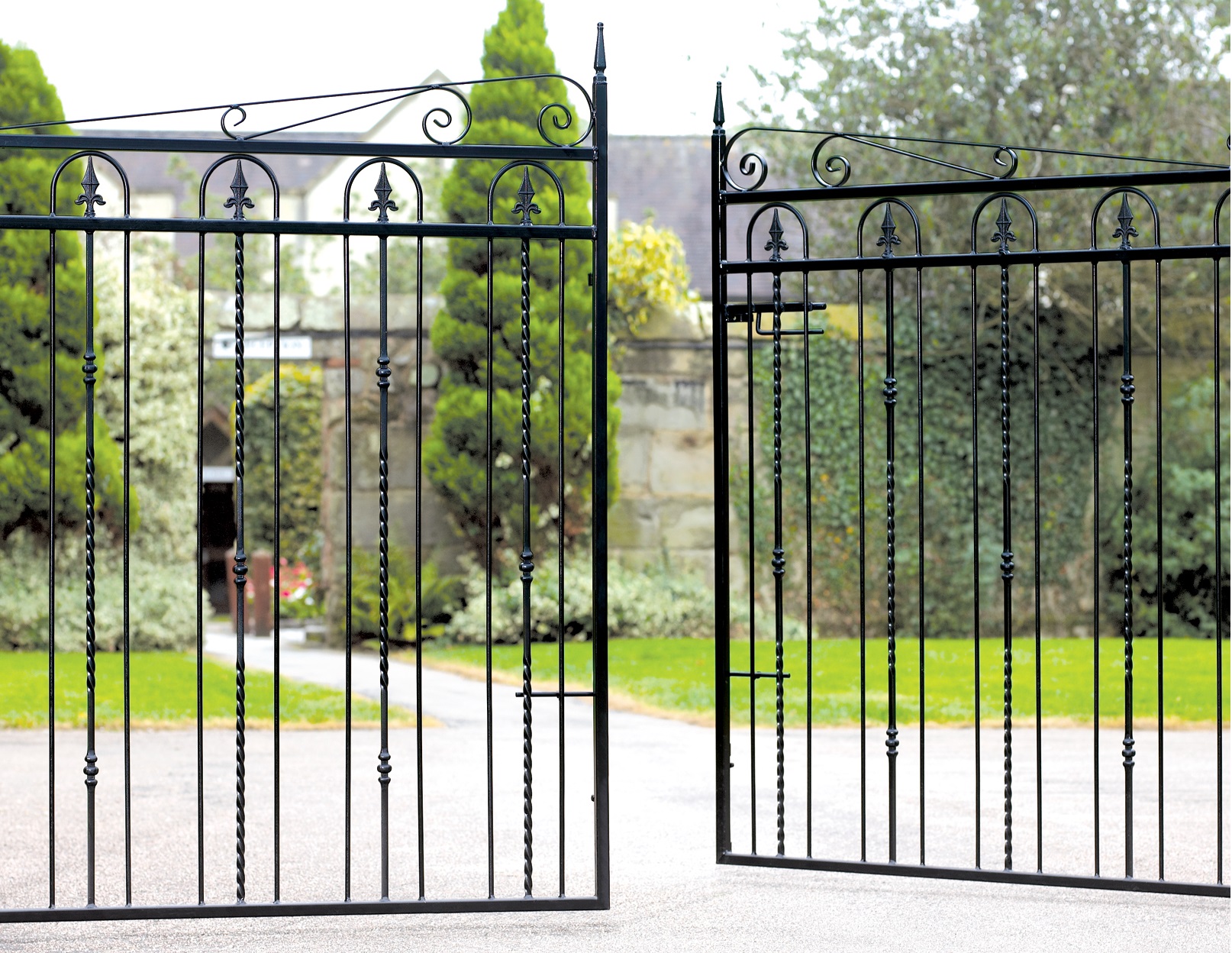
The Wood Choice: Often Associated with Natural beauty … with strings attached
Historically speaking, timber gates bring warmth and character that metal simply can't match. They're perfect for country properties or homes with traditional architecture and features. Oak, for instance, can last decades with the proper cared-for treatment.
However, on the flip side, wooden gates are like high-maintenance relationships—they need constant attention. You're looking at annual staining or painting, and even then, they're vulnerable to warping, splitting, and insect damage.
Hardwoods like oak and iroko perform better than softwoods, but they'll cost significantly more. Cedar offers natural resistance to decay, making it a sensible compromise.
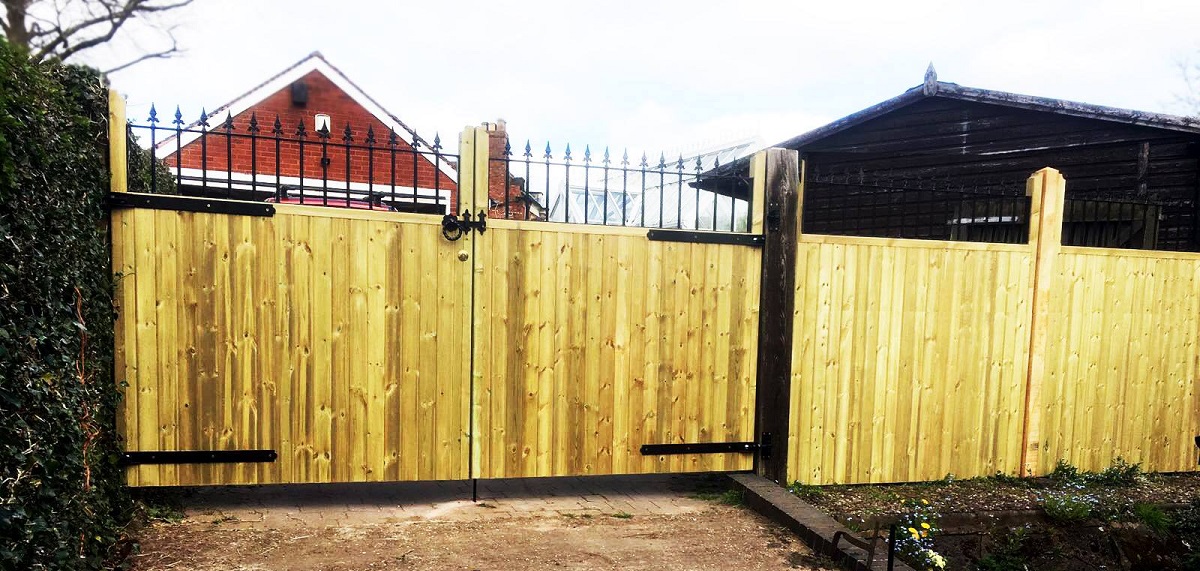
Composite materials: Maybe the best of both worlds?
Composite gates combine different materials to maximise benefits whilst minimising weaknesses. Steel frames with timber infills, for example, offer durability with natural aesthetics.
These hybrid solutions are becoming increasingly popular, especially for automated gates where weight matters. They're not perfect though by any means and repairs can be trickier if one material fails differently than the other.
What about security and automation?
Your material choice affects more than just appearance. Heavy gates need strong hinges, stronger posts, and more powerful motors if you're going automated. Steel might be secure, but it'll cost more to automate than aluminium.
Consider your local crime rates too. In higher-risk areas, the psychological deterrent of a solid steel gate might outweigh the convenience of lightweight aluminium.
The weather factor
British weather isn't kind to outdoor materials. Coastal properties face salt corrosion, whilst inland areas deal with freeze-thaw cycles that can damage weaker materials.
Aluminium and galvanised steel handle moisture brilliantly. Timber needs serious protection. Standard mild steel requires regular maintenance to prevent rust.
Your final decision
So, what's the best material? Well, it depends on your specific situation. For most UK homeowners, we'd recommend galvanised steel or powder-coated aluminium. They offer excellent durability, reasonable costs, and minimal maintenance—perfect for our unpredictable climate.
If budget's tight, go with treated mild steel but budget for annual maintenance. Want something special? Wrought iron or quality timber creates stunning entrances, but you'll pay both upfront and ongoing.
Here at Metal Gates Direct - after fifteen years in the business, here’s our key takeaway - choose based on your lifestyle, not just your wallet. A gate that looks amazing but becomes a maintenance nightmare isn't worth the hassle. The best material is the one that'll still make you smile five years from now—without breaking the bank to keep it there.


